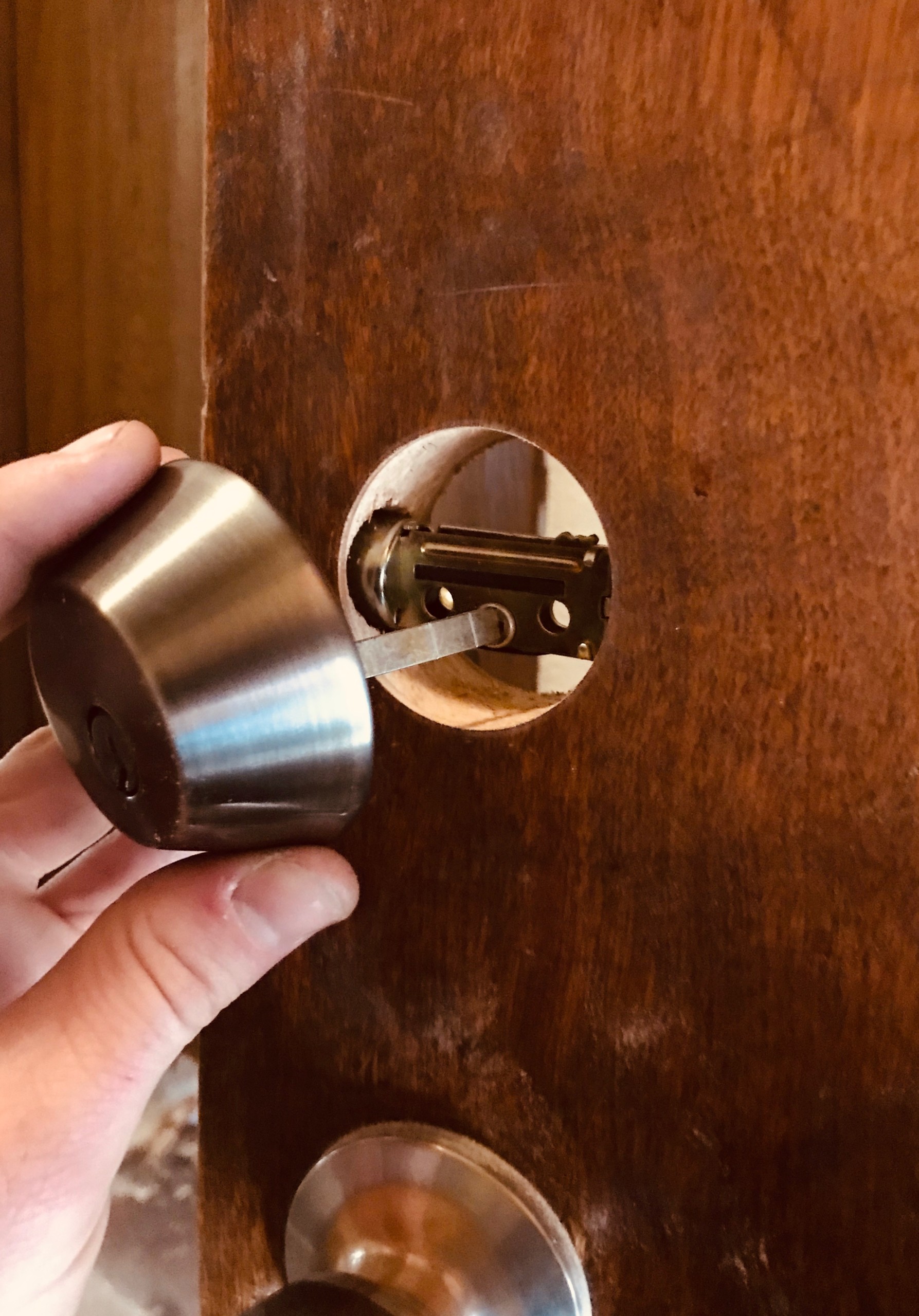I often do my locksmithing in Willits. The other night I got a typical call from a worried mother because a crazed, ex-boyfriend keeps breaking into her daughter’s house.
These types of security issues are scary, but there are a number of ways to solve them, and one of the simplest and most cost-effective is to install a deadbolt. Our client’s daughter’s boyfriend (this is starting to sound like a soap opera) was getting into the house with a simple trick where he was able to open the door latch even when the knob was locked from the inside. However, you can’t use that trick with deadbolts. These locking systems sit inside the door frame without a graduated latch and will stay there until retracted with a key or picked. So, our client scheduled an appointment and this locksmith headed to Willits to install a deadbolt.
Now there are different kinds of deadbolts, but in the main, there are two primary residential types: mechanical deadbolts and keypad entry deadbolts.
Mechanical entry deadbolts are the kind homeowners typically use on their homes because they are relatively cheap and get the job done effectively. Installation requires a moderate level of skill to drill the appropriate holes, mortice in the strikes, and set up timing for the tail-piece. However, if users install a mechanical deadbolt properly, their entryway will be secure.
On the other hand, what homeowners might not consider is that manufacturers from the most popular lock companies also offer electronic, keypad locks for residential use. They are a bit pricy (~$150–$200) and the set up is just a touch more complicated but they too can hold your doors tight.

So how should users know which deadbolts to use?
With mechanical deadbolts, the primary advantage is that are no electronics and all users need is a key to lock and unlock the door. That’s the beauty of old-school methods: designs are simple; and while mechanical pieces do wear out with use, it will likely be a long time before users encounter a problem. Simply throw in your key, twist and voila! You’re good to go. Plus, these deadbolts are cheap and effectively make entryways secure. The one disadvantage to mechanical entry deadbolts comes with the keys…literally. If users lose their keys or if someone has a key who shouldn’t (like evicted tenants or crazy relatives), then in most cases,* these homeowners will have to call a residential locksmith to pick the deadbolt or change out the locks; a call which can get pricy quickly.
On the other hand, keypad entry deadbolts have an advantage that trumps this issue: keyless convenience. With these locks, users can lock their doors with the push of a button, and unlock their doors using a personalized, securely, changeable code. So basically, there is no need to go fumbling around your pockets and bags trying to find your keys. Just enter your code and your in. To further the case for these deadbolts, as a safeguard, these locks can also be operated with keys so forgotten codes and dead batteries won’t lock owners out. Also, users can program several, changeable entry codes into a single lock. What this means is that there is no need to call a locksmith to rekey your doors when “crazies” have a code because owners can “change the locks” themselves. And if that weren’t cool enough, there are currently several systems where users can access their locks with their smart phones for further ease of access, locking and unlocking even from long distances. There is, however, one disadvantage to these types of deadbolts. They are based on an electronic system which means that while they are convenient to use, batteries need to be changed periodically and electronic malfunctions will likely be more expensive to fix than in a mechanical lock (such as if a lock needs to be replaced).
So really, the choice is yours. Deadbolts are a great way to secure a door, and when weighing whether to use mechanical or electronic systems, you’ll just have to decide what advantages you like better. Let us know what you like and why.
*Kwikset makes a mechanical, Smartkey system which can be easily rekeyed by homeowners so long as owners have one working key, one new key and the Smartkey, rekey tool.
